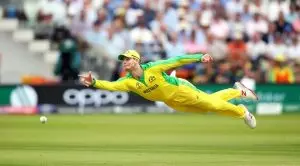 The Professional Cricketers’ Association (PCA) has provided its support to an English professional cricket player by paying his gambling debts off. A few years ago, Azeem Rafiq, a 30-year-old cricket player had racked up massive gambling-related debts worth thousands of dollars. To help him, the PCA offered its moral and financial support by paying his debts off and directing him to professional gambling counselling. The story came to light amid some allegations of racial discrimination that the PCA is currently facing.
The Professional Cricketers’ Association (PCA) has provided its support to an English professional cricket player by paying his gambling debts off. A few years ago, Azeem Rafiq, a 30-year-old cricket player had racked up massive gambling-related debts worth thousands of dollars. To help him, the PCA offered its moral and financial support by paying his debts off and directing him to professional gambling counselling. The story came to light amid some allegations of racial discrimination that the PCA is currently facing.
Mr Rafiq himself has described his interest in gambling as an “indiscretion”. Apart from that, the cricket player claims to have fallen victim to racism while being on the pitch. Although he had received both moral and financial help from the Professional Cricketers’ Association for dealing with his gambling addiction, he continuously criticises the body, saying the organisation is unable to stand by him and support his claims against Yorkshire coaches and players.
So far, an independent investigation had confirmed seven of the racism allegations made by Mr Rafiq.
The professional cricket player met with a select committee of the Department of Digital, Culture, Media and Sport (DCMS) and criticised the PCA in relation to the claims that he has been subject to racism at Yorkshire. At the time, he said that the PCA had been willing to provide him with support about his mental health during a suicidal crisis of his in 2020, but claims that the Association had refused to provide him with any financial support to deal with his problems.
No Prevention Measures for Gambling Athletes Available in Current Gambling Policy of the PCA
 Unfortunately, the story of Azeem Rafiq is not an isolated case of a professional athlete who falls victim to gambling addiction to the point when they end up in massive debt. Other sports stars have also gone through similar situations at some point in their lives after becoming unable to keep their gambling habits under control and ended up with a negative balance in their accounts.
Unfortunately, the story of Azeem Rafiq is not an isolated case of a professional athlete who falls victim to gambling addiction to the point when they end up in massive debt. Other sports stars have also gone through similar situations at some point in their lives after becoming unable to keep their gambling habits under control and ended up with a negative balance in their accounts.
For years, sports betting has been among the most preferred forms of gambling. With the US Supreme Court ruling in favour of the country’s market liberalisation in 2018, the federal ban on sports betting was slashed, making the new form of gambling available across the country, and expanding the global gambling sector with a new lucrative market which only means that sports betting has come to stay.
However, the attractive betting options offered by various gambling operators have led to excessive addictive behaviours of both regular people and professional athletes, who have managed to simply ruin their lives with outstanding debts that led not only to financial problems but mental health issues as well.
As an answer to the constantly increasing number of cases of professional athletes who get addicted to gambling, the majority of sports leagues have already established special provisions aimed at preventing individual players and entire sports teams from betting on their own sports. However, some markets rules allow them to still place bets on other sports.
With Mr Rafiq’s story getting public, the PCA’s gambling-related policies have become put under the spotlight. It could even push the Association to take into consideration its current betting athlete policy and revise it. According to some experts, the PCA could establish completely new protocols or make some additions to the already existing ones, especially considering its ongoing partnership with EPIC Risk Management.
Currently, no prevention measures for athletes who gamble are included in the existing policy of the PCA and, according to experts, this must change. The Professional Cricketers’ Association is expected to address the matter of gambling among cricket players while raising awareness of the dangers associated with gambling addiction. Furthermore, other sports leagues across the UK have also been called to reconsider their gambling policies and update them as soon as possible.
- Author


